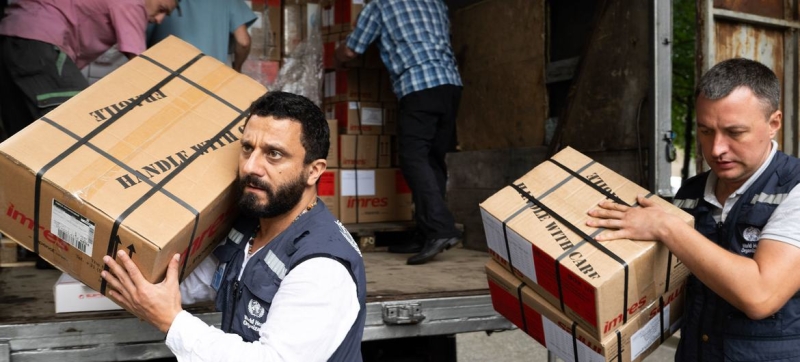
WHO supplies for medical institutions in Ukraine. Top news of the day | Tuesday: Palestine, Ukraine, USA, interfaith relations UN
Top news of the day in the UN and in the world: situation in the West Bank, WHO requests $110 million to help Ukrainians, consequences of suspension of US foreign aid programs, World Week of Interfaith Harmony.
West Coast
A large part of the Jenin refugee camp in the occupied West Bank has been destroyed in a series of controlled explosions by Israeli security forces, the UN Refugee Agency (UNRWA) said. UNRWA spokeswoman Juliette Tuma told reporters in Geneva that all 30,000 residents had left the camp as of Tuesday morning. UNRWA is facing unprecedented challenges after the Israeli parliament passed laws restricting its activities. The laws came into force last Thursday, but Tuma added that the Israeli government has not told UNRWA how they will be implemented.
WHO assistance to Ukraine
The World Health Organization (WHO) has requested $68.4 million in emergency assistance for Ukraine. In addition to the humanitarian response related to the ongoing conflict, WHO also needs to continue its broader efforts in the country to support the recovery and reform of the health system. An additional $41.6 million is needed for this, bringing the total funding needed to $110 million. According to the UN, 12.7 million people in Ukraine need urgent humanitarian support, of which 9.2 million require medical care.
US Funding
UN humanitarian agencies have expressed concern over the US decision to suspend funding for external aid programs. Speaking at a press conference in Geneva, Pio Smith, Regional Director for Asia and the Pacific at the United Nations Population Fund (UNFPA), highlighted the serious consequences of the reduction in support, particularly in Afghanistan, where UNFPA projects that a lack of US funding could lead to 1,200 additional maternal deaths and 109,000 unintended pregnancies between 2025 and 2028.
Human Fraternity
The UN celebrates World Interfaith Harmony Week in the first week of February. It aims to strengthen mutual understanding between different religions and faiths. The Week also marks International Day of Human Fraternity on February 4, which aims to support the ideas of equality, unity and mutual respect. Today, discrimination, xenophobia and intolerance are on the rise around the world, the UN Secretary-General said on the occasion of the Day. He called on all people, including religious leaders, to seek dialogue beyond differences and to resist hatred.
